- Home
- P. D. James
Time to Be in Earnest Page 6
Time to Be in Earnest Read online
Page 6
Ely has changed now, and seems attractive, even lively, particularly the development on the waterfront. When Jane, Peter and the grandchildren were at Cambridge, we would motor over and have lunch at the Old Fire Engine House. I have been back to give a talk at the Arts Centre and last year to give the first Ely Lecture in the Cathedral. Occasionally, too, the Liturgical Commission of the Church of England meets at Ely in the pleasant diocesan conference centre. On none of these visits have I ever been burdened by this morning’s weight of vague irritation and regret. I suppose I regret Ely because the decision to take that particular job was so stupid. And the fault was mine. Even at seventeen and with no one to talk over the possibilities, I should have known better. Those months of servitude were such a waste of youth, enthusiasm and idealism. But my time in the Ely tax office wasn’t entirely wasted. Nothing that happens to a novelist ever is.
By the time I had made my first pot of tea and fed my cat Polly-Hodge, the unease had faded. There is no point in regretting any part of the past. The past can’t now be altered, the future has yet to be lived, and consciously to experience every moment of the present is the only way to gain at least the illusion of immortality.
FRIDAY, 15TH AUGUST
Has anyone discovered a really satisfactory way of reading comfortably in bed? For some of us this is virtually our only free time except when on holiday. Reading is so important, so necessary to the nourishment of mind and spirit that I feel that it should be as seriously ceremonial as a church service. Ideally we need a comfortable chair with back and arm support and good, well-directed light, a rest for the book if it is too heavy to hold comfortably, a small table with our favourite drink to hand, and silence and solitude. It is an ideal that few of us are able to obtain. I find in recent years that I read far less new fiction and more nonfiction, particularly letters, biography and autobiography, history and diaries. This is nothing to be proud of; I ought to tackle more new fiction—and the word “tackle” is appropriate—but there are still so many classics unread, so many old favourites to comfort and entertain, and indeed to find new pleasures in. I like to have one old favourite and one new by the bedside. At present the old favourite is The Small House at Allington and the new book—new to me only—is Sowing by Leonard Woolf, an autobiography of the years 1880–1904.
I came to Anthony Trollope comparatively late, certainly in my mid-thirties, but he has provided me since then with enormous pleasure. But I wonder if he knew what a monster he had created in Lily Dale? Admittedly Crosbie is a cad, but I can’t help congratulating him on his escape. And I pity poor Mrs. Dale, destined to spend her old age with a resolutely single and masochistic Lily. Similarly with The Golden Bowl. I wonder if Henry James expected us to sympathize with Maggie Verver and her father, the millionaire American who first uses his money to buy a suitable husband for his daughter in the person of the Prince, and then, when her marriage results in his loneliness, buys a suitable wife for himself in the person of her husband’s ex-lover. This is to suggest that writers occasionally don’t know what or whom they have created, which is surely a nonsense.
Leonard Woolf’s Sowing, which in this edition is only 176 pages long and which I finished in an evening, is only the first volume of his autobiography and covers his childhood and the five years at Trinity College, Cambridge, where he was a friend of Thoby Stephen, Lytton Strachey, and a group of young men who were to become the Apostles and the founders of the Bloomsbury Group. He first saw Thoby’s two sisters, Vanessa and Virginia Stephen, one summer afternoon in Thoby’s rooms. They were wearing white dresses and large hats and carrying parasols, and he writes that their beauty literally took his breath away. They were staying with their cousin, Miss Catherine Stephen, who was Principal of Newnham, and who was with them, not in her capacity as cousin, but as chaperone, since in 1901 a sister was not allowed to see her brother in his rooms in a male college except in the presence of a chaperone.
The rules of chaperonage were certainly much less severe when Connor was at St. Catharine’s College, but there were still restrictions. The porter took a lively interest in any women who came and went in the evenings and we were supposed to be out of the gate by ten at the latest. An edict was issued that ladies in college when the air-raid alarm sounded must go immediately to the Master’s Lodge where they would sit with the Master’s wife in her drawing-room until the All-Clear. I am not sure whether this was because college authorities feared that the excitement of a possible air raid would induce lascivious emotions, or to prevent us staying past the allotted time on the excuse that it was far too dangerous to venture out on the streets. The first siren note was the signal for a hurried mass exodus of women. Today sex for students seems to be almost compulsory. Their lives may be more liberated, but I doubt whether they have as much fun.
I have never felt comfortable with the Bloomsbury Group, strongly disliking their snobbery, their intellectual arrogance, their selfishness and their rudeness. So why, I wonder, do they exert such a fascination for me? In the years when Woolf and his contemporaries were at Trinity, Henry James was writing at the height of his powers. As students they read The Sacred Fount, The Wings of the Dove and The Golden Bowl as they came out. They thought there was an element of ridiculousness in the novels which made it impossible to rank them with the greatest, but they were entranced and almost hypnotized by the strange Jamesian convoluted beauty and subtlety which act upon those who yield to them like drink or drugs.
Leonard Woolf describes how, after he and Virginia Stephen were married in 1912, Virginia acted for a short time as secretary for Roger Fry’s second post-impressionist exhibition at the Grafton Galleries, and Henry James came to tea, which was served in the basement. As he talked he tilted back his chair till it was balanced on the two back legs and maintained this equilibrium by holding on to the edge of the table. Henry James did this whenever he came to tea with the Stephen family and as his long sentences untwined themselves the chair would slowly tilt backwards and the children’s eyes would be fixed on it, hoping that it would finally overbalance and deposit James on the floor. Time after time he managed to recover himself, but indeed one day it did happen. The chair went over and the novelist, undismayed, was flung on the floor. He was unhurt and, after a moment, completed his characteristically ceremonious and flowery sentence.
SUNDAY, 17TH AUGUST
To Oxford yesterday to be Guest of Honour at a crime weekend at St. Hilda’s College, of which I am an Honorary Fellow.
I was to have seen a friend for lunch at the Old Parsonage, but she rang to say that she has a virus so I kept the table booking and went with Alixe Buckerfield de la Roche, a friend who lives in my house in Oxford.
She was deeply concerned about two recent student suicides at Oxford. A postgraduate student hanged herself at the end of term and Alixe witnessed the terrible distress of her parents and young brother at the Somerville College memorial service. The suicide of the young is more common now than it was in my youth. I can’t recall the suicide of a single friend or acquaintance during my childhood or adolescence. Perhaps today we all take happiness as our right and unhappiness is seen as shameful and insupportable. Or is it that some people have an imperfect appreciation of linear time? For them, the present moment is immeasurable, fixed in an eternal agony. There can be no hope that things will be better tomorrow, because the idea of a tomorrow has no reality.
Sitting in the garden in St. John Street I thought of the words of William Blake which I quoted in An Unsuitable Job for a Woman:
Down the winding cavern we groped our tedious way, till a void boundless as the nether sky appeared beneath us, and we held by the roots of trees and hung over this immensity; but I said: if you please we will commit ourselves to this void and see whether providence is here also.
It is wonderful prose, but hardly helpful in the context of self-destruction. If providence is not there we shan’t be aware even of disillusionment.
I returned to London by the 7:10 bus this
morning, a good time to travel before the heat of the day. The sun was a smudged silver ball and the sheep seemed to move sluggishly through that early morning mist. Polly-Hodge wasn’t waiting for me at the door as she usually is, but came through the cat-flap into the kitchen as soon as I put on the kettle for the tea I didn’t wait to make in Oxford. She must have been sleeping in someone’s coal-house, if such a thing now exists, as the top of her head was black. She looked diminished and a little uncared-for, which she always manages to do if left for more than a day, even though provided with fresh food and water.
I read the Sunday papers with little enthusiasm. Do the public really care about the antics of the Princess of Wales and her lover? Then to 11 o’clock Mass at All Saints, Margaret Street, where Prebendary Gaskill preached on death, an unusual choice of subject. He touched on the last rites. The thought that the last physical sensation of a Christian would be the touch of holy oil on the forehead is seemly, but I wonder how often that happens in practice. Death, after all, seldom comes when invited or by appointment. We are likely to take our last breath, whether peaceful, gasping, in pain, or mercifully unconscious, in a place we wouldn’t have chosen. And even if our loved ones have managed to manoeuvre their way through the traffic and have avoided hold-ups on the motorway to arrive at the hospital in time, essentially we all die alone. They will see us but we shall not see them. The most I hope for is a sight of the sky. The last person I watched as she lay dying had had nothing to look at during those last few days of consciousness but the wall of her hospital room and, beyond it, a claustrophobically close wall of grey London stone.
I slept in the afternoon. There were letters unwritten and papers unsorted. Not a productive day, but not an unhappy one, despite the thoughts about death.
MONDAY, 18TH AUGUST
Today I left for Cambridge by the 10:30 train from King’s Cross which took less than an hour. The service to Cambridge is now remarkably quick and comfortable. In my childhood the fast trains went always to Liverpool Street and the slower to King’s Cross, but the opposite is now true. The old Liverpool Street station was, for me, the gateway to London, a terminus of excitement and romance. I had arranged for a car to meet me at Cambridge, which took me to Swavesey to visit an elderly sick friend, Doris Wheatley, now chair-bound, and her friend and caretaker, Kay Harper.
After lunch to Clare’s cottage in Orchard Street where I rested during the afternoon for an hour before a car called for me to take me to the BBC studios in Hills Road for the recording of a radio autobiography. The producer, Mandy Morton, had devised a programme in which I should talk about my life and work, interspersing those segments with illustrative readings from the novels. It was a long evening’s work, lasting from a quarter to seven to a quarter past ten, and I was grateful that the air conditioning meant that the studio was very cool.
Mandy had brought with her a ration book and an identity card from the war to refresh my memory. They had been lent to her by a lady over eighty who frequently broadcasts about her life and the war years, and who had also written a note reminding me of the rations during the time of the worst shortages: two ounces of butter a week, six ounces of other fats—usually four of lard and two of margarine, a quarter of a pound of tea. The system was that we all registered with a butcher and a grocer. This meant, of course, that the registrations and the address on the books had to be changed when people moved. This was one of the jobs I did during my time with a local office of the Ministry of Food in Christ’s College and I can remember a succession of extremely young, pretty girls, the new wives of Air Force fighter and bomber pilots, who came in with their ration books to be changed. I wondered how many of them were very shortly to be widows.
Our lives in war-time, particularly those of us with young children, seemed to be dominated by food; where to get it, how to cook it, how to make the most of what was available. It was possible to register as a vegetarian, and those who did so received an extra weekly allowance of cheese. In large families, I remember, one or more members would register as vegetarians with general advantage to the family diet. There was a points system for tinned and other goods and things came on or off points as they were available. We would queue for fish, or for anything else which was not on the ration and which occasionally would be delivered to a particular shop. The news would soon get round and the queue would lengthen.
From 1943 until the end of the war in Europe, I lived in a beautiful, now demolished, house at Chigwell Row in Essex, called White Hall. The owners, Dr. and Mrs. Price-Watts, had made a flat for their daughter-in-law which she now no longer needed and which I took over. There were tall elms in the garden, noisy with rooks, and the local butcher had the idea of shooting them, then selling the carcases back to Mrs. Price-Watts. Her cook did, indeed, make rook pie on one occasion, which I was invited to share. I can remember a tangle of extremely sharp and small bones and virtually no meat, but the gravy was excellent.
And I can remember—which of my generation can’t?—the particular culinary horrors of war: Woolton pie, composed of vegetables and sausage meat more crumb than sausage, and brown Windsor soup which tasted of gravy browning. And we got very tired of carrots. At one time there was a glut of them and we were showered with a plethora of Ministry of Food leaflets extolling the virtues of carrot soup, carrot casserole and carrot cake. Carrots, we were told, were particularly good for our eyes. It was because of the carrots they ate that our gallant airmen were successful in shooting down so many enemy planes. Woolton pie and brown Windsor soup featured largely on the menu of the British Restaurants set up under the aegis of the Ministry of Food to provide inexpensive and healthy meals. In this I think they largely succeeded. Despite shortages and occasional real hunger the country was remarkably healthy.
A red-letter day for us was the arrival of a parcel from India, where my husband, by now a qualified doctor, was serving with the Royal Army Medical Corps. It contained tea and some tins of unspecified meat, but the great joy was a round tin of butter. It was very pale, salt-less, and tasted rather like newly made farm butter. I suppose I should have doled it out over the days, but I couldn’t resist one glorious splurge. I would sit Jane in her high chair and we would feast on toast liberally soaked with butter.
It was on one such day when I was feeding fingers of toast into Jane’s buttery mouth that I heard on the radio (which we then called the wireless) the news of the dropping of the atomic bomb. I can still recall the mixture of awe and triumph in the announcer’s voice when he said, “We have unleashed against the enemy the power of the sun itself.” I knew that the dropping of the bomb would almost certainly bring Connor home earlier and probably safely. But it was still, for me, a moment of horror and, looking almost aghast at my two happy, buttery daughters, innocently unconscious of the meaning of what we were hearing, I knew that for all of us the world had changed for ever.
TUESDAY, 19TH AUGUST
Back from Cambridge to a very heavy weight of post which Joyce and I tackled this afternoon. This is one of the penalties, or at least disadvantages, of fame. I receive numerous requests for photographs, signatures, signed books to sell at auctions in aid of local worthy causes (this is becoming so popular that my stock of hardbacks is now depleted), advice on work in progress or help with a personal problem. There is an expectation that I am an expert on law, real-life murder, civil liberties and the constitution. Then there are requests to present prizes at school speech days, talk to writers’ groups or take part in a proliferation of literary festivals, here and overseas. Bulky packages arrive with depressing frequency, containing the manuscript of a novel with a request that I should either advise how to get it published, write a foreword or provide a quote for publicity.
Some afternoons, like today, we tackle the dreaded “pending” file to which inevitably we consign the most difficult time-consuming letters in the hope that they will somehow answer themselves. Very occasionally they do. It seems churlish not to reply to kind and enthusiastic letters fr
om readers or to refuse to help people trying to repair the church spire or provide books for their primary school, but it all takes up time I should be devoting to this memoir and I haven’t the ruthlessness—or perhaps I lack the courage—to follow the example of Nancy Mitford, who sent out postcards simply stating “Nancy Mitford is unable to do what you ask.” Meanwhile the fax machine slowly spews out its messages and the telephone rings.
I pondered this evening that I couldn’t have foreseen all this busyness when Cover Her Face was published in 1962. But then I remembered that my first appearance in print was much earlier, in 1935 or 1936 when I won a short story prize at the Cambridge High School for Girls and my winning entry was published in the school magazine. I wish I still had a copy. As far as I remember the action took place on a South Sea island where a group of characters were marooned. How? Why? When? Memory is mercifully blank. One of the party was desperately ill and required a rare drug which fortuitously arrived when a small biplane crashed on the island. I suspect that my story was low in credibility but high on drama and atmosphere.
The announcement of the prize was one of the highlights of the five very happy years from eleven to sixteen which I spent at the school. The school uniform was a dark green gym slip, square yoked, with three large box pleats fore and aft to allow for adolescent swellings, a garment in which even the most graceful figure tended to look clumsy. Girls who had achieved a place in the Second XI hockey team wore a pale blue sash, those in the First a green sash with a thin blue line. When I first read Muriel Spark’s The Prime of Miss Jean Brodie I felt an immediate kinship with her characters leaning across their bicycles wearing their hat brims at different angles. Ours were normally worn turned up at the back and down at the front, but there were a few adventurous spirits who wore the brim turned down at the back. We wore the same uniform for games, and for gym took off our tunics and performed our disciplined contortions in our blouses and dark green knickers. There were no showers and no personal lockers; coats and hats and any belongings were hung on pegs in the cloakroom. Nothing in the whole of my time at the Cambridge High School was ever stolen.

 The Skull Beneath the Skin
The Skull Beneath the Skin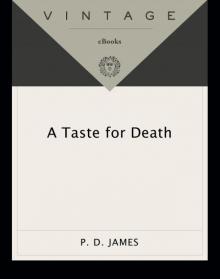 A Taste for Death
A Taste for Death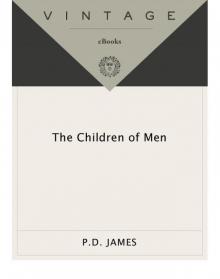 The Children of Men
The Children of Men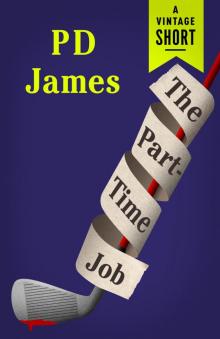 The Part-Time Job
The Part-Time Job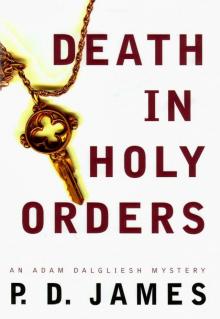 Death in Holy Orders
Death in Holy Orders The Victim
The Victim Shroud for a Nightingale
Shroud for a Nightingale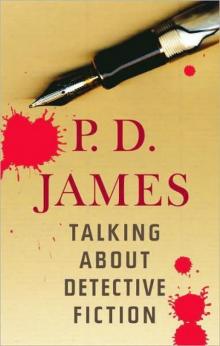 Talking about Detective Fiction
Talking about Detective Fiction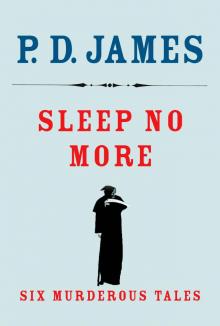 Sleep No More
Sleep No More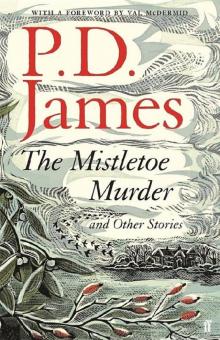 The Mistletoe Murder and Other Stories
The Mistletoe Murder and Other Stories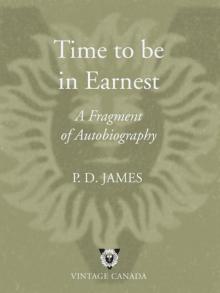 Time to Be in Earnest
Time to Be in Earnest Original Sin
Original Sin A Mind to Murder
A Mind to Murder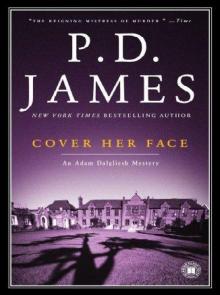 Cover Her Face
Cover Her Face Innocent Blood
Innocent Blood Devices and Desires
Devices and Desires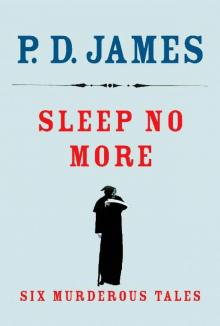 Sleep No More: Six Murderous Tales
Sleep No More: Six Murderous Tales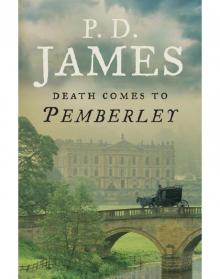 Death Comes to Pemberley
Death Comes to Pemberley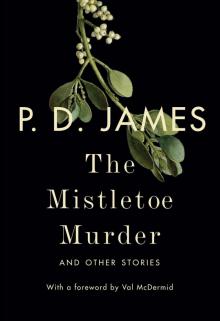 The Mistletoe Murder
The Mistletoe Murder Death of an Expert Witness
Death of an Expert Witness The Private Patient
The Private Patient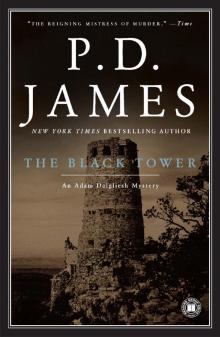 The Black Tower
The Black Tower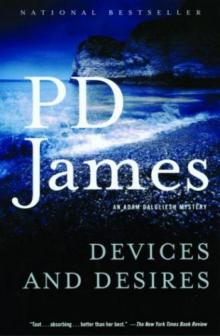 Devices & Desires - Dalgleish 08
Devices & Desires - Dalgleish 08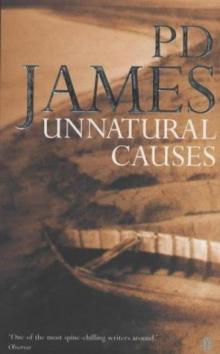 Unnatural Causes
Unnatural Causes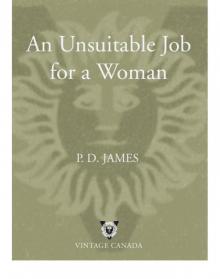 An Unsuitable Job for a Woman
An Unsuitable Job for a Woman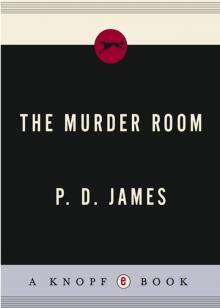 The Murder Room
The Murder Room A Certain Justice
A Certain Justice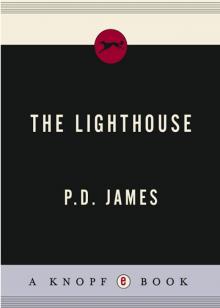 The Lighthouse
The Lighthouse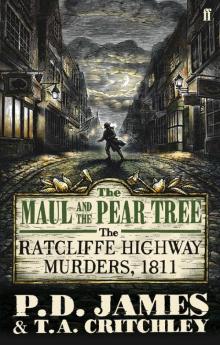 The Maul and the Pear Tree
The Maul and the Pear Tree